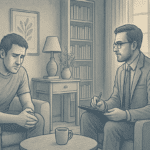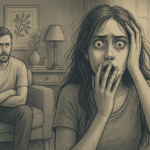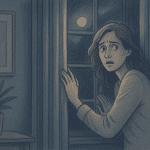Key Takeaways
- Untreated delusional disorder typically becomes chronic, with delusions becoming more entrenched and resistant to treatment over time.
- Long-term untreated delusional disorder leads to significant social isolation, relationship breakdowns, and potential legal complications.
- The condition often triggers secondary mental health problems, including depression and anxiety, with increased suicide risk in severe cases.
- Early intervention dramatically improves treatment outcomes and quality of life for those with delusional disorders.
- At A Mission For Michael, our comprehensive treatment approach combines carefully selected medications, specialized psychotherapy, and family support programs customized to each individual’s unique illness presentation.
Untreated Delusional Disorder
Delusional disorder is characterized by fixed false beliefs that persist despite contradictory evidence. Unlike brief psychotic episodes, untreated delusional disorder typically becomes chronic, with symptoms that fluctuate in intensity but rarely disappear without professional intervention.
The challenge with delusional disorder lies in its insidious nature. Many people living with this condition lack insight into their illness; they genuinely believe their delusions are real, making them resistant to seeking or accepting treatment. Family members often recognize the problem long before the affected individual acknowledges anything is wrong. This lack of insight, or anosognosia, is not stubbornness but a clinical feature of the disorder itself.
Understanding the long-term trajectory of untreated delusional disorder is crucial for families and healthcare providers. Without appropriate intervention, what begins as a seemingly manageable condition can evolve into a debilitating disorder that impacts every aspect of an individual’s life.
Founded in 2010, A Mission For Michael (AMFM) offers specialized mental health care across California, Minnesota, and Virginia. Our accredited facilities provide residential and outpatient programs, utilizing evidence-based therapies such as CBT, DBT, and EMDR.
Our dedicated team of licensed professionals ensures every client receives the best care possible, supported by accreditation from The Joint Commission. We are committed to safety and personalized treatment plans.
Progressive Symptoms of Untreated Delusion
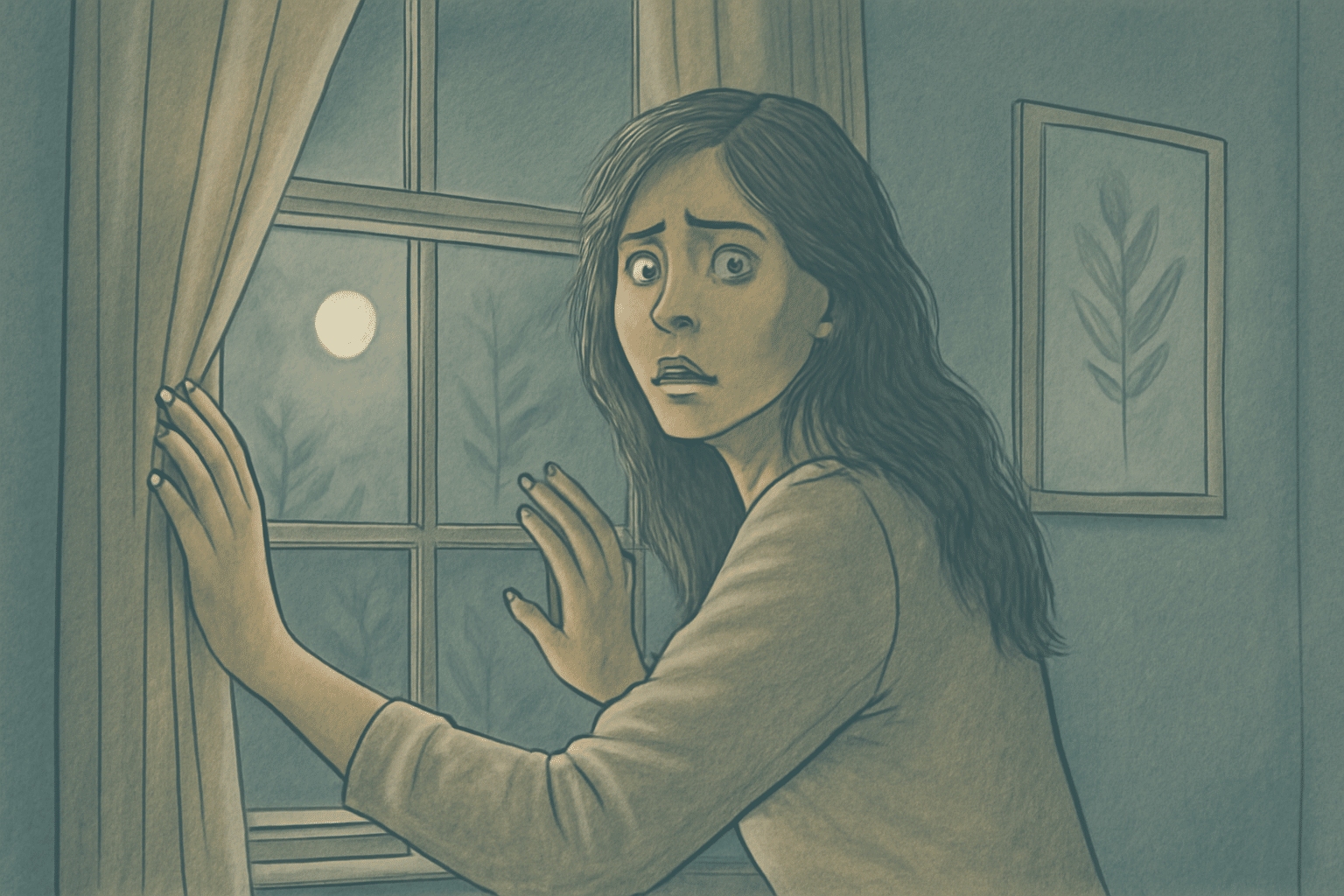
The progression of untreated delusional disorder typically follows a predictable pattern, though the timeline varies between individuals.
Worsening Delusions
Initially, delusions might be circumscribed to specific situations or beliefs. However, as the disorder progresses untreated, these false beliefs frequently expand in scope and complexity. A person who initially believes a neighbor is spying on them might eventually develop elaborate theories involving government agencies or widespread conspiracies.
The narrative becomes increasingly complex as the individual incorporates new information, even contradictory evidence, into their delusional framework. This expanding delusional system makes day-to-day functioning increasingly difficult.
Belief Entrenchment
One of the most concerning aspects of long-term untreated delusional disorder is how firmly entrenched the false beliefs become. Over months and years, the neural pathways supporting these beliefs strengthen, making them extraordinarily resistant to change.
The longer a person lives with untreated delusions, the more their brain becomes wired to maintain these thought patterns. This neurological entrenchment explains why delusional disorder becomes progressively harder to treat the longer it continues without intervention.
Reality Detachment
As delusional disorder progresses untreated, there is a gradual detachment from consensus reality. The individual increasingly lives in a world shaped by their delusions rather than shared understanding.
This progressive detachment from shared reality makes meaningful communication increasingly difficult. Family members often start “walking on eggshells” around certain topics, knowing that mentioning them might trigger delusional interpretations. The communication breakdown becomes a significant factor in the social isolation that typically follows.
Social Consequences
Relationship Breakdown
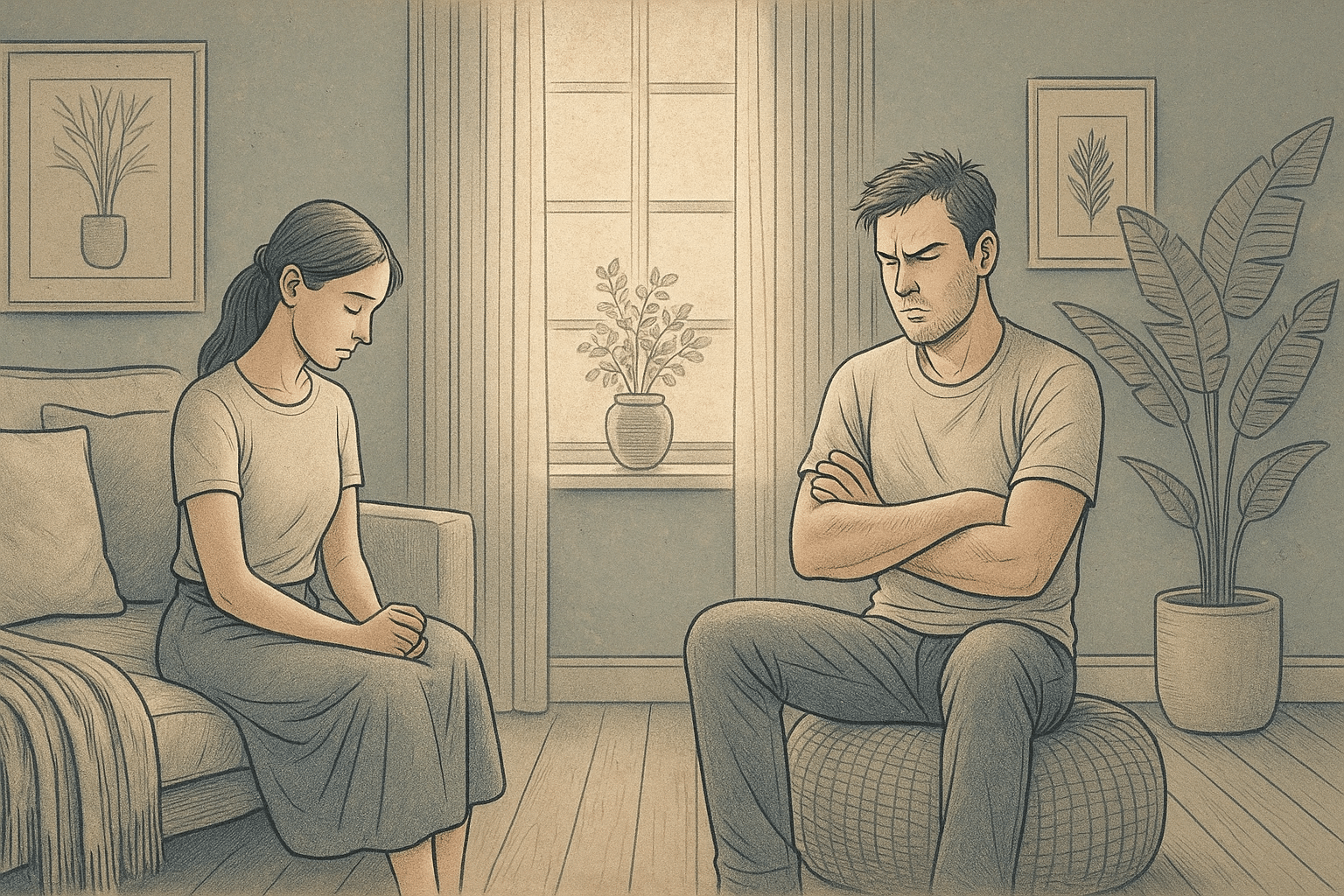
Intimate relationships frequently bear the brunt of untreated delusional disorder.
When delusions involve suspicions about a partner’s fidelity (jealous-type delusions) or beliefs that the partner is somehow harmful or malicious, maintaining healthy relationships becomes nearly impossible.
Even the most patient and understanding partners eventually find themselves exhausted by the constant accusations, mistrust, or bizarre beliefs. Family relationships suffer similarly, though blood relatives may remain involved longer than romantic partners.
Increasing Isolation
Social isolation typically progresses in stages for those with untreated delusional disorder. Initially, the individual might maintain friendships but avoid certain topics or situations that trigger their delusions.
As the condition progresses, their social circle gradually shrinks to include only those who don’t challenge their beliefs or who have limited interaction with the delusional content. Eventually, many become profoundly isolated, sometimes interacting only with those who share or reinforce their delusional beliefs, such as in online echo chambers.
Work Difficulties
Maintaining steady employment becomes increasingly challenging as delusional disorder progresses without treatment. Depending on the nature of the delusions, individuals might become convinced that coworkers are plotting against them, that management is monitoring them specifically, or that work processes have hidden, sinister meanings.
These beliefs can lead to inappropriate workplace behaviors, conflicts with colleagues, or inability to fulfill job responsibilities.
Mental Health Decline
Depression Risk

Depression is perhaps the most common complication of long-term untreated delusional disorder.
Depression caused by delusional beliefs develops through multiple pathways. The social losses and life disruptions create genuine grief and demoralization. The constant state of hypervigilance required to maintain the delusional system exhausts mental resources.
Perhaps most significantly, many individuals experience profound hopelessness as they find themselves unable to resolve the situations their delusions tell them exist.
Anxiety Development
Chronic anxiety frequently accompanies untreated delusional disorder, particularly when the delusions involve threats or persecution. Living in a world you perceive as dangerous, hostile, or manipulative creates a persistent state of fear and vigilance.
This chronic stress response takes a significant toll on both mental and physical health. The anxiety often manifests as irritability, sleep disturbances, concentration difficulties, and physical symptoms like headaches or digestive problems. Over time, this anxiety can crystallize into formal anxiety disorders that require treatment approaches.
Suicidal Thoughts
In severe cases, untreated delusional disorder can lead to suicidal ideation and behavior. The combination of social isolation, functional impairment, secondary depression, and the distress of living with frightening or demoralizing delusions creates significant suicide risk. The person may see no way out of their perceived situation or may believe ending their life is the only way to escape persecution or prevent harm to others.
Physical Health Impact
Sleep Disruptions
Sleep disturbances are nearly universal in untreated delusional disorder. The heightened state of alertness that accompanies persecutory delusions makes achieving restful sleep particularly difficult. Many individuals experience insomnia, fragmented sleep patterns, or nightmares related to their delusional content.
Stress-Related Illnesses
Living with untreated delusions subjects the body to chronic stress, activating the sympathetic nervous system and elevating stress hormones like cortisol for extended periods. This physiological state of hyperarousal damages multiple body systems over time. Individuals with untreated delusional disorder often develop conditions including hypertension, digestive disorders, tension headaches, and compromised immune function.
Neglect of Self-Care
As delusional preoccupations intensify, basic self-care often diminishes. Individuals may become so consumed by their delusions that they neglect nutrition, personal hygiene, regular medical care, or management of existing health conditions. In severe cases, this neglect can lead to serious medical complications such as nutritional deficiencies, untreated infections, or uncontrolled chronic conditions like diabetes or hypertension.
Effective Interventions
Early Detection Benefits
When delusional disorder is identified and treated in its initial stages, before beliefs become deeply entrenched, the prognosis improves dramatically. Early intervention prevents the cascade of social, occupational, and physical health complications that make recovery more difficult. It allows for treatment before neural pathways supporting delusional thinking become deeply established, making cognitive restructuring more effective.
Medication Options
Pharmacological treatment typically forms the foundation of effective intervention for delusional disorder, even in long-standing cases. Low-dose atypical antipsychotics are generally the first-line treatment, with selection based on the individual’s age, medical conditions, and potential side effect profile. These medications help reduce the intensity of delusions and alleviate associated anxiety, creating a window of opportunity for psychotherapeutic interventions.
Therapy Approaches
Specialized psychotherapy approaches are essential components of effective treatment for delusional disorder. Cognitive Behavioral Therapy adapted specifically for delusions (CBTp) has shown promising results, even for long-standing cases. Rather than directly challenging delusional beliefs, which typically increases resistance, CBT focuses on exploring the evidence supporting various interpretations of experiences, examining the impact of beliefs on the individual’s life, and developing coping strategies for distressing situations.
Don’t Let Delusional Disorder Progress Untreated – Trust AMFM
At A Mission For Michael, we understand that delusional disorder presents unique treatment challenges, particularly the lack of insight that makes individuals resistant to seeking help. Our specialized approach has been developed specifically for these complex cases.
We don’t simply treat the symptoms; we address the whole person, understanding that recovery requires rebuilding trust, restoring relationships, and healing the extensive damage that untreated delusional disorder creates. Our integrated treatment model combines carefully selected medications, specialized psychotherapy techniques adapted for delusional thinking, and comprehensive family support programs.

Our residential treatment centers across California, Virginia, and Washington provide the intensive, coordinated care necessary for breaking the destructive patterns that untreated delusional disorder creates.
What sets us apart is our expertise in working with individuals who lack insight into their condition. Through motivational interviews, relationship-building approaches, and our understanding of the neurological aspects of delusional disorder, we’ve successfully helped countless individuals.
Don’t wait for the condition to become more entrenched. Early intervention dramatically improves outcomes, but even long-standing cases can achieve meaningful recovery with proper specialized care.
Frequently Asked Questions
How long do untreated delusions typically last?
Without intervention, delusional beliefs often persist for years or even decades. The duration varies based on several factors, including the type of delusion, presence of supporting social networks, concurrent mental health conditions, and individual resilience factors. Some research suggests that certain types of delusions may be more persistent than others; for example, persecutory delusions often prove more enduring than somatic delusions.
Can untreated delusional disorder lead to schizophrenia?
Approximately 15–20% of individuals initially diagnosed with delusional disorder may eventually meet criteria for schizophrenia as additional symptoms emerge. This represents a refinement of diagnosis rather than progression of one disorder into another. The more typical pattern is for untreated delusional disorder to remain relatively stable in its core symptoms while accumulating complications like depression, anxiety, and functional impairment.
What’s the first sign someone needs professional help?
The earliest indicator that professional intervention is needed often involves a noticeable change in the individual’s behavior or thinking patterns. Family members might observe increased suspiciousness, references to unusual beliefs, withdrawal from previously enjoyed activities, or subtle changes in how the person interprets everyday events. These changes typically precede the development of fixed, clearly articulated delusions.
How do you convince someone with delusions to seek treatment?
Approaching someone with delusional beliefs requires careful strategy and compassion. Direct confrontation or attempts to disprove delusions typically strengthen resistance and damage trust. Instead, focus on building a relationship based on respect and concern, acknowledging the person’s distress without validating or challenging specific beliefs. Framing treatment as help for concrete problems the person recognizes, such as anxiety, sleep difficulties, or relationship problems, often proves more effective than focusing on the delusions themselves.
Can delusional disorder resolve naturally without any treatment?
In our extensive clinical experience at AMFM, spontaneous complete remission of delusional disorder is extremely rare. Without professional intervention, the condition typically becomes chronic with symptoms that may fluctuate in intensity but seldom disappear entirely. A Mission for Michael offers treatment for both early and long-standing cases, ensuring meaningful recovery with proper specialized care.









